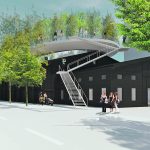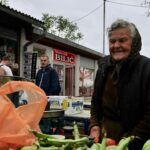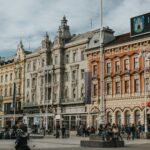The new museum might open as early as the end of 2018.
Branko Lustig, a famous film producer and a survivor of the Auschwitz concentration camp, is collaborating with the competent authorities of the City of Zagreb to open a Holocaust Museum in the Croatian capital. His close associate Nataša Popović stated the museum should be opened at the end of 2018 or at the beginning of 2019, reported Novi list on September 29, 2017.
Popović said they are currently looking for associates and curators, emphasizing that the Holocaust Museum will also be known as a ‘museum of tolerance’. It will be located in the centre of Zagreb, at the corner of Branimirova and Držićeva streets, in a former oil factory that’s currently going through renovation works. Before World War II, the building was owned by a Jewish family.
According to Novi list, Popović also stated that the project was launched by the Centre for Promotion of Tolerance and Remembrance of Holocaust. The non-profit institution was founded in June 2017 by the City of Zagreb and the Festival of Contemporary Jewish Cinema, the latter launched by Lustig in 2006.
News about the Holocaust Museum opening in Zagreb hit the media in spring last year, but it didn’t seem to draw any traction. Popović said the lack of information was a conscious decision by the founders, as they are still working on a detailed presentation. They aim to apply the proposal for EU funding, now that it’s been approved by the City of Zagreb.
“We are currently looking for local and foreign experts who could work on a concept. We don’t dispose of any artefacts that could be exhibited, but the idea is to create a multimedia-based museum that would be interactive and become a place where young people could learn the truth about history and tolerance. The history of the Holocaust should be laid out with a special emphasis on the Holocaust in Croatia”, said Popović.
She added that the project founders still haven’t talked with representatives of communities who suffered during the Holocaust in Zagreb – the Jews, the Serbs, the Roma, and others. “We have only started to develop the project seriously. We are looking for curators, we want to unite all historians relevant [to this topic]. The project is not small and it can’t be done in a hurry”, Popović concluded.
Translated from Novi list.









